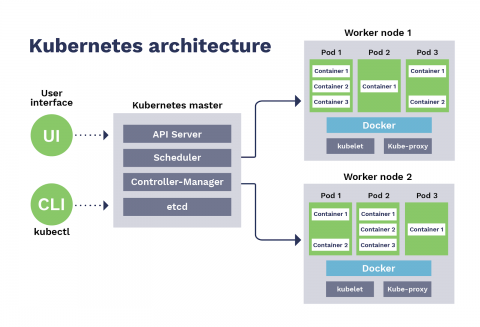Operations | Monitoring | ITSM | DevOps | Cloud
Containers
The latest News and Information on Containers, Kubernetes, Docker and related technologies.
Disaster Recovery Strategies for Kubernetes
Autoscaling? Kubernetes Pods vs. Nodes
Not only does it deploy and manage containers, Kubernetes autoscaling enables users to automatically scale the overall solution in numerous ways. This is a tremendous asset, especially in the modern cloud, where costs are based on the resources consumed. Not only does Kubernetes have the capacity to deploy and manage containers, it can also automatically scale the overall solution in numerous ways.
K3S streamlines deployment of global edge applications
Serverless and containers - how and when to use them
If you have anything to do with the world of cloud computing or even programming for that matter, then I’m sure you’ve heard of different terms being tossed around such as “serverless computing” or “containers,” and even “monolithic architectures.” A lot of people who understand such computing methods can have a bad habit of using these terms without leaving any explanation as to what they are.
Monitor Harbor container registry with Datadog
Harbor, developed by VMware and hosted by the CNCF, is an open source registry for container images and Helm charts. Hosting Harbor within your infrastructure gives you a number of advantages over using the default Docker registry, such as role-based access control, security scanning, and replication of resources between registry instances. Since a failed Harbor deployment can spell trouble for your containerized workloads, monitoring your self-hosted container registry is critical.
Splunk Kubernetes Monitoring Demo
How Kubernetes works
It's no secret that the popularity of running containerized applications has exploded over the past several years. Being able to iterate and release an application by provisioning its dependencies through code is a big win. According to Gartner, “More than 75% of global organizations will be running containerized applications in production” by 2022.
Best Practices for Automating Monitoring
Developer teams and even operational teams often ignore monitoring applications. Deadlines, inexperience, company culture, and management can lead to poor or neglected monitoring inside developing platforms. Automating all monitoring tasks is an excellent way to avoid this scenario. Automation leads to lower costs, less time spent solving issues, and more efficient teams.











